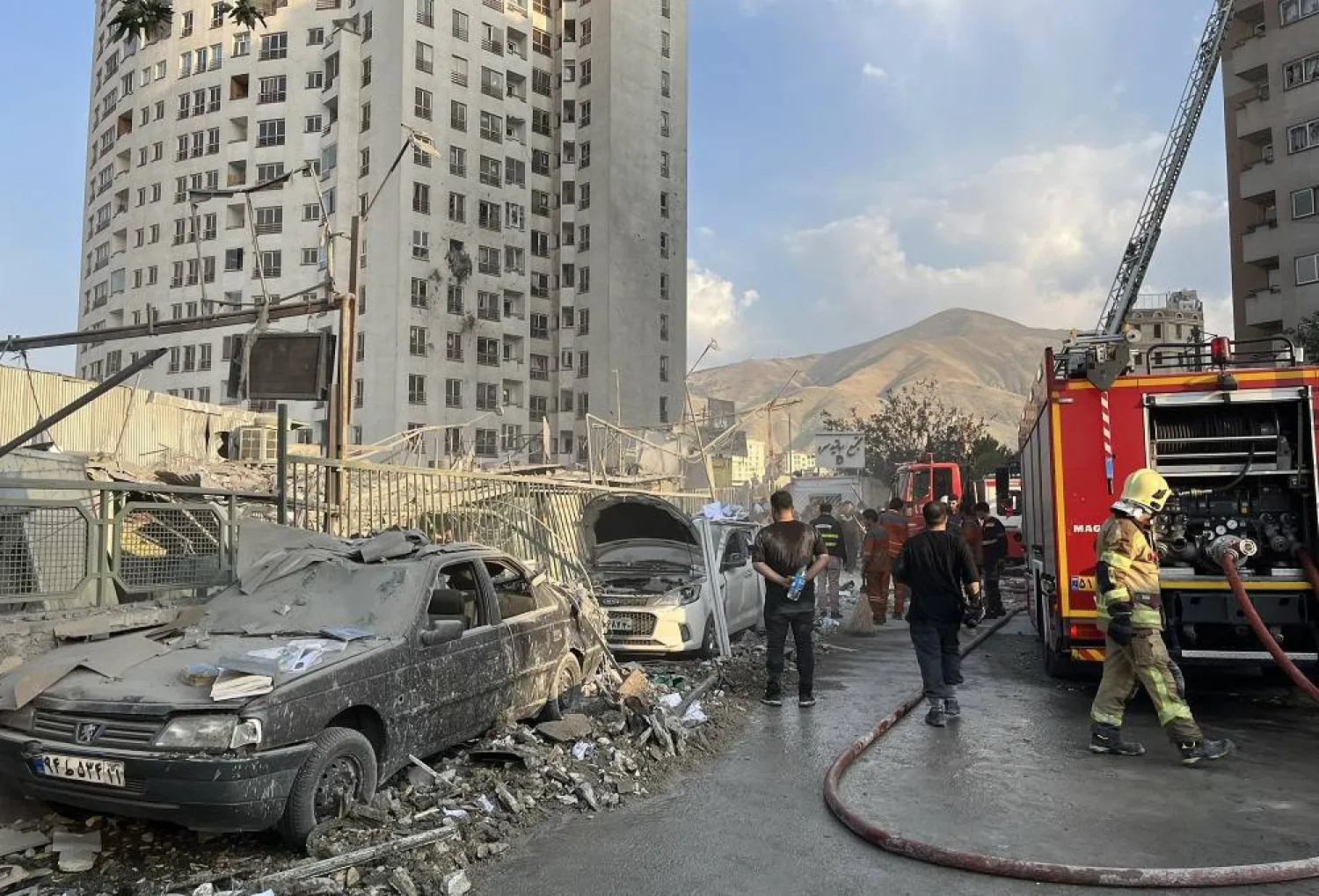Israel said on Friday it carried out strikes in Iran, a day before talks between Iran and the US about Tehran's escalating uranium enrichment program were set to take place in Oman.
This marks the latest escalation since the war in Gaza began in 2023 and heightens fears of an all-out war between the two countries, whose history of enmity spans decades of clandestine conflicts and includes land, sea, air and cyber attacks.
Following is a timeline of key events:
1979 - Iran's pro-Western leader, Mohammed Reza Shah, who regarded Israel as an ally, is swept from power in a revolution that installs a new Shiite theocratic regime with opposition to Israel an ideological imperative.
1982 - As Israel invades Lebanon, Iran's Revolutionary Guards work with fellow Shiite there to set up Hezbollah. Israel will eventually see the armed group as the most dangerous adversary on its borders.
1983 - Iran-backed Hezbollah uses suicide bombings to expel Western and Israeli forces from Lebanon. In November a car packed with explosives drives into the Lebanon headquarters of Israel's military. Israel later withdraws from much of Lebanon.
1992-94 - Argentina and Israel accuse Iran and Hezbollah of orchestrating suicide bombings at Israel's embassy in Buenos Aires in 1992 and a Jewish center in the city in 1994, each of which killed dozens of people.
Iran and Hezbollah deny responsibility.
2002 - A disclosure that Iran has a secret program to enrich uranium stirs concern that it is trying to build a nuclear bomb in violation of its non-proliferation treaty commitments, which it denies. Israel urges tough action against the country.
2006 - Israel fights Hezbollah in a month-long war in Lebanon, but is unable to crush the heavily armed group, and the conflict ends in an effective stalemate.
2009 - In a speech, Iranian Supreme Leader Ali Khamenei calls Israel "a dangerous and fatal cancer".
2010 - Stuxnet, a malicious computer virus widely believed to have been developed by the US and Israel, is used to attack a uranium enrichment facility at Iran's Natanz nuclear site. It is the first publicly known cyberattack on industrial machinery.
2012 - Iranian nuclear scientist Mostafa Ahmadi-Roshan is killed by a bomb placed on his car by a motorcyclist in Tehran. A city official blames Israel for the attack.
2018 - Israeli Prime Minister Benjamin Netanyahu hails President Donald Trump's withdrawal of the US from Iran's nuclear deal with world powers after years of lobbying against the agreement, calling Trump's decision "a historic move".
In May, Israel says it hit Iranian military infrastructure in Syria, where Tehran has been backing President Bashar al-Assad in the civil war, after Iranian forces there fired rockets at the Israeli-occupied Golan Heights.
2020 - Israel welcomes the assassination of General Qassem Soleimani, commander of the Quds Force, the overseas arm of Iran's Revolutionary Guards, in an American drone strike in Baghdad. Iran strikes back with missile attacks on Iraqi bases housing American troops. About 100 US military personnel are injured.
2021 - Iran blames Israel for the assassination of Mohsen Fakhrizadeh, viewed by Western intelligence services as the mastermind of a covert Iranian program to develop nuclear weapons capability. Tehran has long denied any such ambition.
2022 - US President Joe Biden and Israeli Prime Minister Yair Lapid sign a joint pledge to deny Iran nuclear arms in a show of unity by allies long divided over diplomacy with Tehran.
The undertaking, part of a "Jerusalem Declaration" crowning Biden's first visit to Israel as president, comes a day after he tells a local TV station he is open to a "last resort" use of force against Iran - an apparent move toward accommodating Israeli calls for a "credible military threat" by world powers.
April 2024 - A suspected Israeli airstrike on the Iranian embassy compound in Damascus kills seven Revolutionary Guards officers, including two senior commanders. Israel neither confirms nor denies responsibility.
Iran responds with a barrage of drones and missiles in an unprecedented direct attack on Israeli territory on April 13. This prompts Israel to launch a strike on Iranian soil on April 19, sources familiar with the matter say.
October 2024 - Iran fires over 180 missiles at Israel in what it calls revenge for the killing of Hezbollah leader Hassan Nasrallah on September 27 in an airstrike on Beirut's southern suburbs, and the killing of Hamas chief Ismail Haniyeh in Iran's capital on July 31.
Israel strikes military sites in Iran later in the month, saying it was retaliating against Tehran's attacks. Iranian media reports explosions over several hours in Tehran and at nearby military bases. Iran reports "limited damage" to some locations.
June 2025 - Israel carries out strikes in Iran it says were aimed at disrupting the country's nuclear infrastructure and targeted scientists working on a nuclear bomb in an operation that would continue for days.
Calling the offensive "Rising Lion," Israel says it was also targeting Iranian commanders and missile factories while declaring a state of emergency in anticipation of Iranian retaliation. Iranian state media reported the killing of Tehran's Revolutionary Guards Commander Hossein Salami and nuclear scientists Fereydoun Abbasi-Davani and Mohammad Mehdi Tehranchi in the strike.
The US says it was not providing assistance for the operation. The strikes came a day after Trump said US personnel were being moved out of the Middle East because "it could be a dangerous place".














